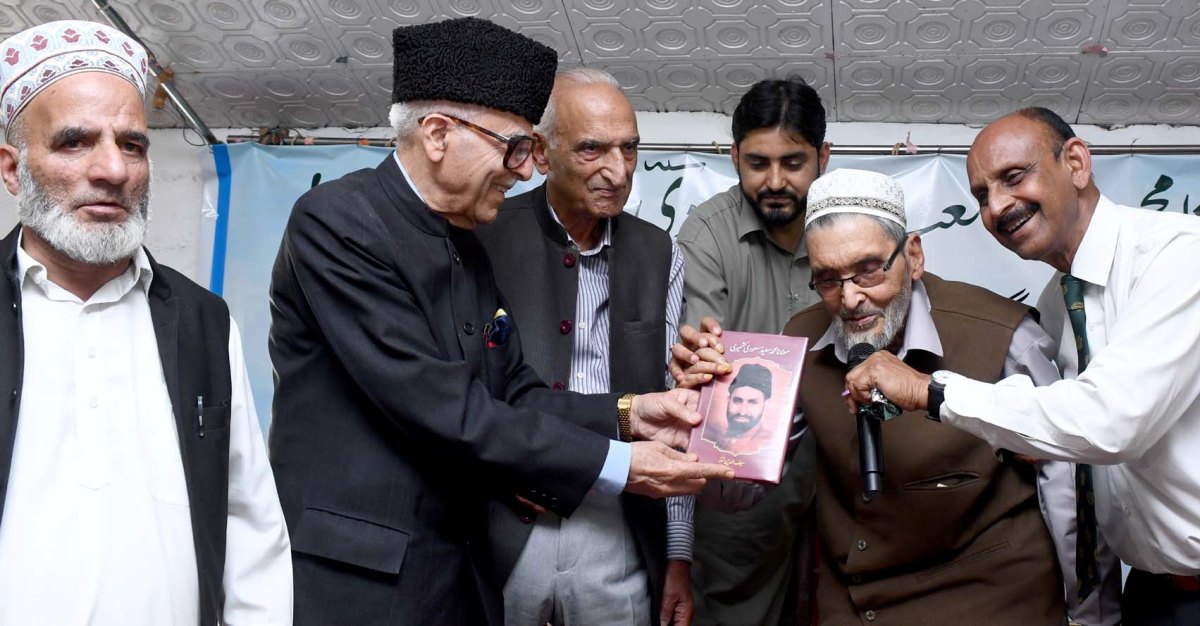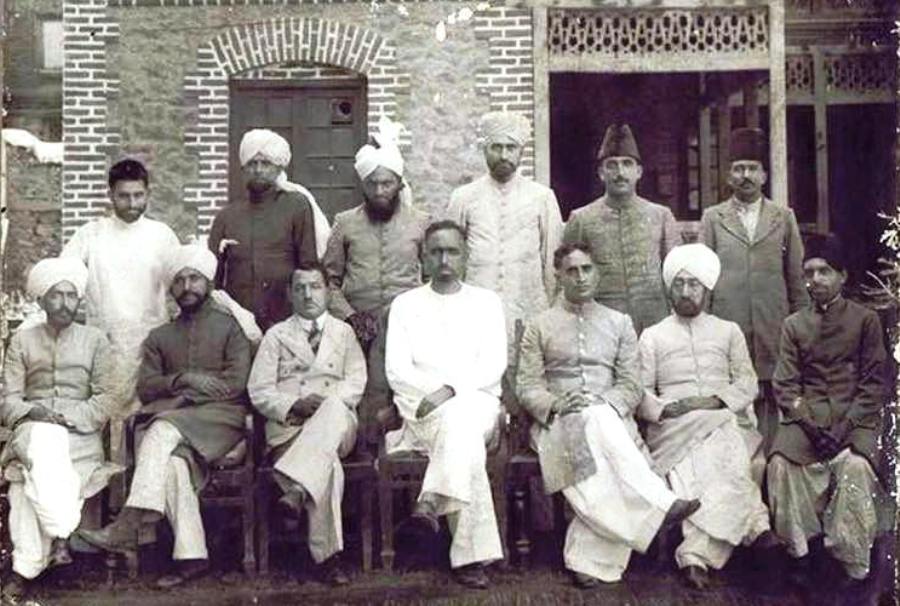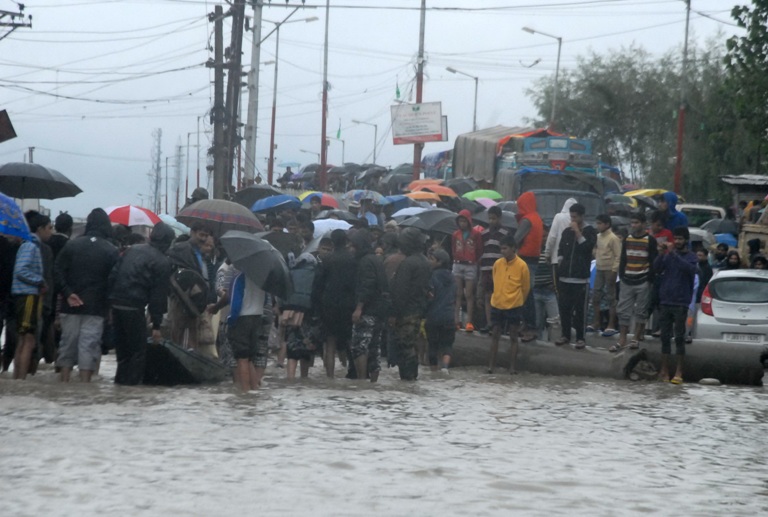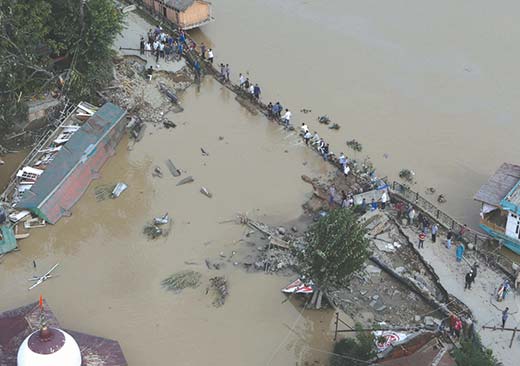SRINAGAR: Kashmir intellectuals called for a serious effort to understand and rediscover the role that Valley’s slain intellectual and politician Moulana Mohammad Sayeed Masoodi played during his long inning in politicians. They were speaking at a book release function envisaging the formal launch of a biography on Masoodi, Moulana Mohammad Sayeed Masoodi Kashmiri that Prof Saifuddin Soz has authored.

“Sheikh (Mohammad Abdullah) Sahab has written many things about Moulana and I believe these (references) need to be put in proper perspective,” Shabir Ahmad Masoodi, the slain leader’s son told the gathering. “He (Masoodi) believed throughout his life that Sheikh Sahab was the only identity of Kashmir and only leader of Kashmir.”
Shabir, a nonagenarian advocate, who is not able to see, presided over the function and thanked Soz for writing his father’s biography. He pointed out certain things that could have been added to the book.
Moulana Masoodi, living a life in retirement, was assassinated by militants on December 13, 1990. Masoodi has been active in Kashmir politics since the early 1940s and was a very close aide of Sheikh Mohammad Abdullah. Post-1953, he remained active in Plebiscite Front and was one of the few politicians whom Bakhshi Ghulam Mohammad feared. Shabir said those days the government would keep him under strict surveillance.

Shabir said while Soz has compiled his father’s 1946 speech in his book, which is of historic importance, he has somehow missed another vital speech that he made in another court proceeding post-partition. My father, Shabir said, was a man of simple tastes. “Once he was asked why he is not constructing his house, he pointed towards the police station and said – there are lot many houses already constructed for him.”
“He always believed that the solution of Kashmir required two parts of a key that Pandit Nehru and Sheikh Abdullah carried with them,’ Shabir said. “Nehru took his part to his pyre so did Sheikh Sahab to his grave.”
Speaking briefly to the gathering, veteran journalist Mohammad Sayeed Malik said while Soz’s effort needs appreciation, the historian will have to take over the story and rediscover Masoodi’s role in Kashmir politics. A witness to most of the recent history, Malik said Moulana Masoodi’s role during the Holy Relic agitation is next to none. “That was a very sensitive situation where a complete vacuum existed and it was Maoulna Masoodi who took control of the situation, filled the vacuum and gave it a direction,” Malik said, insisting that Moulana always gave his opinion on issues and at times it landed him into controversies. “We still require making a lot of efforts to understand the contributions he made to Kashmir politics.”
Soz, the author of the book, had invited a galaxy

of well-read people from a cross-section of society. However, no political activist was around. He said his book was his homage to a towering Kashmir intellectual and he hoped that the researchers and intellectuals will take the story forward. “People need to know about the towering personalities of Kashmir,” he said.















